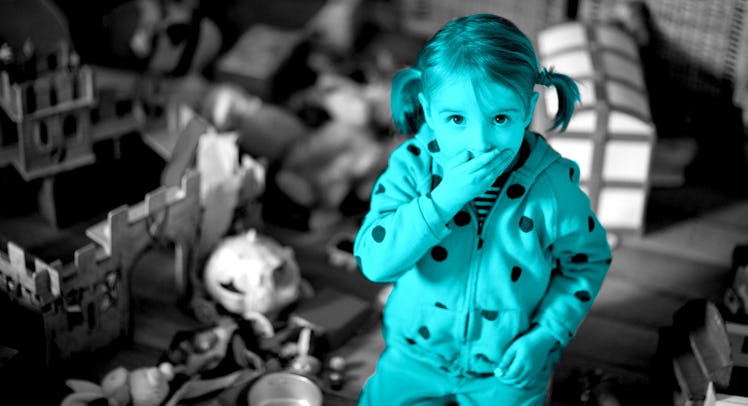How and When to Use Guilt to Discipline Children
Guilt is a natural part of what keeps people from becoming amoral law breakers and it’s a valuable tool in parenting, up to a point.

Mothers are renown for their guilt trips. Jewish mothers in particularly are believed to excel at throwing around the guilt (Editor’s Note: That checks out), as do Italian Catholic mothers (Other Editor’s Note: That too.). Mom-guilt is the stuff family comedies are made of, mostly because the experience of the specific sort of disapproval is universal enough that pangs of recognition ripple through a mass audience. But it turns out that parental guilt, while annoying later in life, may be just the thing a child needs to be a better person.
Looking at guilt from a cultural perspective, it’s easy to see that it works in even outside the parental realm. What keeps people from parking in a parking spot reserved for disabled adults isn’t just the stiff fine, it’s also the guilt associated with the act. That makes guilt an incredibly prosocial emotion to have. In order to feel guilt, a person has to understand how their behavior has affected another person for worse. In order to understand that, a person must have empathy.
What’s more, guilt is deeply uncomfortable. It not something people, much less kids, like to feel. And the only way to get rid of guilt is to admit the guilt and makes amends.
But parents shouldn’t get guilt confused with another deeply uncomfortable emotion connected to wrongdoing, according to Dr. Michele Borba, author of Unselfie: Why Empathetic Kids Succeed in Our All-About Me World. “It’s not shame. Shame doesn’t work, and that’s part of fear-based discipline,” she says. “What works to turn it around is guilt.”
And that should give parents a good idea about when they can start using guilt (not shame) as a tool. Children do not have the capacity for guilt until they have developed “theory of mind” which is the understanding that different human being can have different thoughts and desires. Theory of mind can begin to emerge around 3-years-old. And only after it develops can kids can start practicing empathy through perspective-taking.
“Guilt is great,” explains Borba. “They start to think ‘Oh my gosh I’ve done something wrong.’ To which the parent should reply ‘What are you going to do to make it right.”
That said, it’s not really about pushing a child into guilt — the idea is not to tell a kid they should feel bad about themselves. That’s not the point. The idea is that the parent should lead the child to an understanding of what they’ve done wrong so they naturally feel the guilt. This is done by asking them to think about how their actions have made another person feel.
“Use the virtue,” says Borba. Essentially call, out why the behavior was unkind or dishonest. Connect it to the values you’re trying to teach. “For heaven’s sake, it’s lying dormant. Eventually, the kid will start to understand how the behavior is connected to morality and character.”
Once they feel the guilt it’s time to lead them towards reparations. The must find a way to make it better somehow. It doesn’t need to be a big thing, it just needs to be an action that prompts a repair. And once they’ve found it, all efforts should be made to ensure the kid that the relationship is once more in good standing.
If all goes according to plan, when your kid is older, parents won’t have to make them feel guilty about not coming to visit. They’ll be visiting because they already know how it would make their parents feel.
This article was originally published on